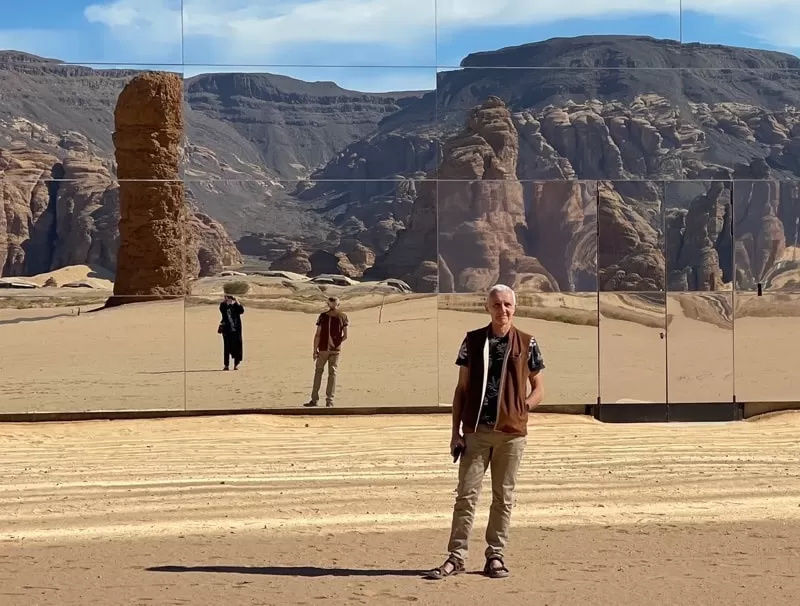
Two recent articles on the Gospel Coalition website ask whether missionaries should target unreached people groups. Darren Carlson and Elliot Clark argue that the strategy rests on a faulty assumption: that the ethnē in Matthew 24:14; 28:19 are not “ethnolinguistic” groups as understood by modern anthropologists but the nations referenced in the promise to Abraham that all the families or tribes of the earth would be blessed through him (Gen. 12:3). Matthew Newkirk agrees that the table of nations in Genesis 10 is in view but holds that the list includes “both tribal and linguistic dimensions, evident by the use of the Hebrew term mishpachot (“clans/families”) as well as by the repeated mention that these various subgroups of Noah’s offspring were divided according to language”. The story of the Tower of Babel, which sits between the table of the nations and the calling of Abraham, further underlines the element of ethnolinguistic differentiation.
I have a few reflections on the matter.
- Babel is a precursor of Babylon. Nimrod’s kingdom began in Babel, but he relocated in Assyria (Gen. 10:8-12). The proposal to make bricks and “build ourselves a city and a tower with its [head] in the heavens” (Gen. 11:4) is inspired by the Akkadian text of the Enuma Elish: “The first year they moulded its bricks…. And when the second year arrived / They raised the head of Esagila toward Apš” (6.60-62). Apš is the heavens.1 Reference to the table of nations in Genesis 10 should not be allowed to obscure the political dimensions to a narrative that not only shaped the historical experience of Israel but also thundered through the New Testament, causing mayhem and generating its central eschatological vision.
- The blessing of the families of the earth is determined by their reaction to the presence of the “great nation” of Abraham’s descendants. Abraham will be the father of a new creation people in the midst of the nations. If those nations dishonour Israel, they will be cursed. If they bless Israel, they will be blessed. The blessing is reciprocal. There is no thought here of the restoration of humanity outside of the covenant people. Israel remains distinct from the nations; they do not migrate into this new creation in microcosm.
- Paul writes: ‘foreseeing that God justifies the nations on the basis of faith, scripture proclaimed beforehand to Abraham that “the nations will be blessed in you”’ (Gal. 3:8). Has he read the text differently? Not necessarily. Some Gentiles have now been included in the covenant people, but I suggest that the underlying thought is eschatological. Paul envisaged a time in the future when the nations would be ruled by a “root of Jesse”, a descendant of David (Rom. 15:12). Some Gentiles were already hoping for that day and had been grafted into the rich root of the promises made to the patriarchs (cf. Rom. 11:17). But the promise made to Abraham would be fulfilled when the nations as nations confessed Jesus as Lord, with the church functioning as the priesthood of this new political-religious order, in place of the old pagan priesthoods.
- Newkirk interprets Jesus’ words about the gospel of the kingdom in Matthew 24:14 in terms of the creational mandate given to humanity to fill the earth as God’s faithful representatives. The apocalyptic outlook of the Gospels has been abandoned in favour of a more open-ended programme. The statement comes in the middle of Jesus’ prophecy regarding the events leading up to the fall of Jerusalem. The good news that would be proclaimed throughout the Greek-Roman oikoumenē—in effect, the empire—as a testimony to all nations, had to do with the coming judgment and renewal of Israel. The “end” of the disciples’ mission would not come before the nations had been informed about the true significance of these events.
- The “great commission” must have had the same historical horizons in view. The mission of the disciples would continue until the end of the age of second temple Judaism, or perhaps until the nations of the oikoumenē confessed that all authority in heaven and earth had been given to Jesus. The purpose of teaching the nations and baptising people “in the name of the Father and of the Son and of the Holy Spirit” was to establish communities that would bear witness to these eschatological outcomes.
The commitment since the Lausanne Conference in 1974, therefore, to proclaim the gospel throughout the world, perhaps down to the level of the smallest ethnolinguistic unit, in order, explicitly or otherwise, to satisfy the conditions for the second coming of Jesus is misconceived. The mission entrusted to the disciples was to declare to the nations that the impending catastrophe of the war against Rome—revealed by the Spirit of prophecy to John the Baptist, Jesus, and to the disciples at Pentecost—must be understood as a decisive intervention by the God of Israel to judge and restore his people.
That “end” came and went, as is the way of history. We may now prefer to construe mission as filling the earth and, as Newkirk puts it, fulfilling “our creational calling as God’s representative images”. I have no problem with that—though I would add the restoration of a credible priestly function. But it wasn’t Jesus’ mission.
- 1E.A. Speiser, Genesis (1974), 75.
Recent comments